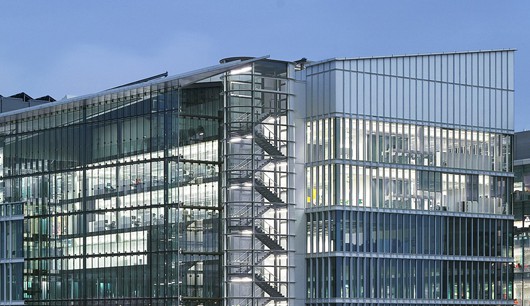
AstraZeneca (AZ) is to cut about 1,600 jobs as part of plans to overhaul its approach to research and relocate its global corporate headquarters to Cambridge, UK, by 2016.
Expected to cost the company a one-time charge of $1.4bn, the restructuring plans mainly affect the UK and US and are a signal of intent from CEO Pascal Soriot, who joined AZ in October last year to reshape the company’s strategy following a series of key patent expiries and pipeline failures.
In the UK, there will be a total of 700 jobs lost, with about 600 redundancies at the company’s research facility at Alderley Park in Cheshire, which currently has 2,900 employees.
In addition to the cuts, 1,600 roles at Alderley Park will be relocated to a new R&D centre in Cambridge that is scheduled to open in 2016, while at least 700 non-R&D roles are expected to remain in Cheshire.
The remaining 100 job losses will come from other sites in the UK, said AZ, potentially including staff at the company’s current UK headquarters in Paddington, London. Other positions will be relocated to the new headquarters in Cambridge once it opens.
The move was criticised by the union Unite, which said the relocation of scientists from Cheshire to Cambridge would create a “skills crisis in the north west”.
Meanwhile in the US, AZ announced its intention to move its global medicines development operations from Wilmington, Delaware, to Gaithersburg, Maryland – the home of AZ subsidiary MedImmune.
As part of this, 1,200 positions will be lost at Wilmington, with just 300 extra roles to be created in Gaithersburg and 170 to be relocated to other AZ sites in the US or overseas.
Wilmington will remain as the company’s North America commercial headquarters, with a staff of about 2,000.
Collaborative R&D centres in UK, US and Sweden
The restructuring is part of a three-year plan from AZ to drastically reshape its approach to research, which includes the development of three R&D centres in the UK, the US and Sweden and a previously announced reorganisation of its senior research heads.
The UK facility, which is expected to house a workforce of about 2,000 people when it launches in 2016, will be based in Cambridge and will benefit from a £330m investment from AZ.
It adds to the company’s existing presence in the city through its MedImmune subsidiary, which focuses on early stage development in biologics.
In addition, AZ said: “Cambridge offers easy access to scientific talent and excellent collaboration opportunities through renowned academic research institutions, pre-eminent hospitals and leading-edge biotech companies.”
The US centre will be the company’s existing site in Gaithersburg, Maryland, while the Swedish site will be based at AZ’s current location in Mölndal.
AZ’s CEO Soriot appears to be taking a more collaborative approach to research through these centres, which are all based in areas of strong life sciences research and will provide AZ access to “world-class talent and opportunities for collaboration and partnership”.
It follows similar efforts from J&J, which recently launched its first ‘innovation centre’ in London.
Explaining the company’s plans, Soriot said the “long-term success [of AZ] depends on improving R&D productivity and achieving scientific leadership”.
“This is a major investment in the future of this company that will enable us to accelerate innovation by improving collaboration, reducing complexity and speeding up decision-making.”
Despite the related job cuts, the R&D investment in the UK was welcomed by the government.
“They chose to make this major investment in the UK after considering options around the world,” said David Willetts, Minister for Universities and Science, who also confirmed a taskforce would help support affected workers in Cheshire.
“Our strategy for life sciences provides a very competitive environment in the UK to conduct highly skilled research keeping us ahead in the global race,” he added.
Steve Bates, CEO of biotech trade body the BioIndustry Association (BIA), was also enthusiastic about the future of AZ in the UK.
“AstraZeneca’s decision recognises the strengths of the UK in terms of its science base, biotech capabilities and position as a leading centre for business,” he said.




